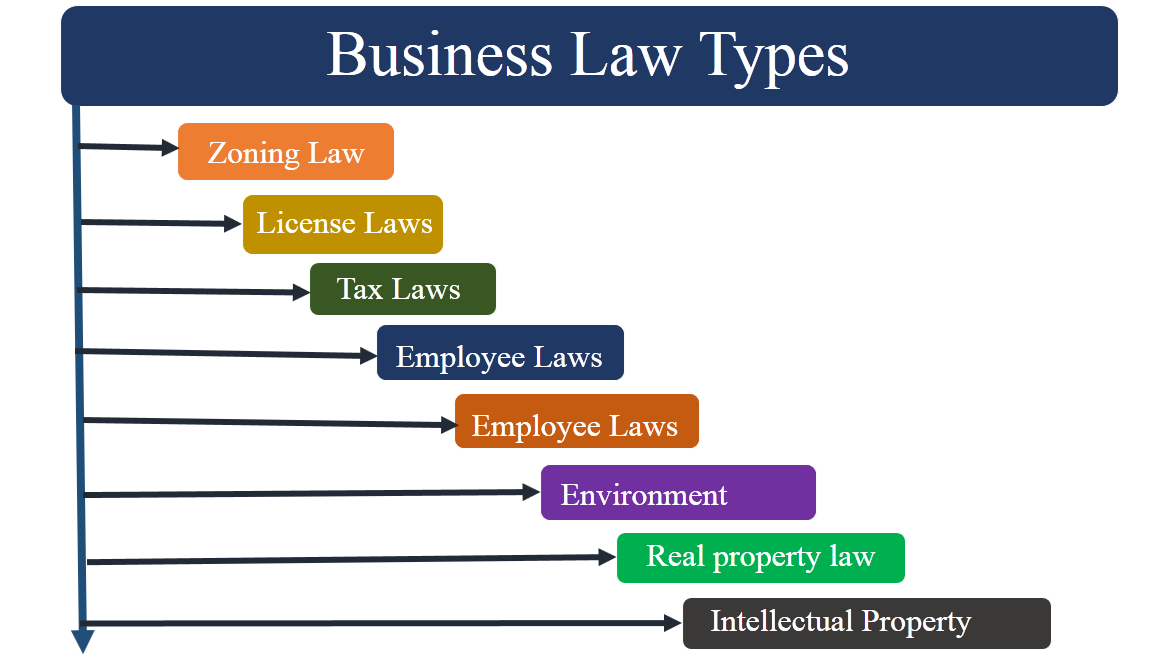
Everything You Need to Know About Corporate Law Generis Global Legal Services
Business Law deals with the fundamental legalities that are required for an organisation's foundation whereas Corporate Law lays emphasis on the operations, activities, and validity of an organisation. In simple terms, Corporate Lawyers write the contracts and business lawyers review those contracts.

What is Business Law? The Contiguglia Law Firm, P.C.
Business Lawyer vs Corporate Lawyer. One of the main distinctions between company lawyers and corporate lawyers is that corporate law seeks to include instructions for the procurement and distribution of competent goods in the often bureaucratic process of providing services on an international market. Corporate law significantly impacts.

What is the Difference Between Corporate Law and Business Law? The Contiguglia Law Firm, P.C.
Business lawyers, in the simplest sense, are concerned with how the law impacts businesses in certain circumstances and activities. They provide assistance on a wide range of legal issues related to the day-to-day operations of a company, such as contracts, employment law and intellectual property. Moreover, business lawyers may provide.

What is Corporate Law? Importance, Legal Guidelines The Law Cases
Corporate law, also commonly referred to as business, enterprise or company law, governs high-level corporate governance, regulation, structuring, financing and management. Broadly speaking, Corporate Law is concerned with corporate governance and corporate finance. Corporate law affects companies and corporations of all sizes and is relevant.

Here’s why being a corporate lawyer can be a lucrative career option
While corporate law focuses on legal aspects governing the sale and distribution of goods, business law covers the legal aspects of mergers and acquisitions, the formation of companies and shareholder rights. Companies need people who have in-depth knowledge of both areas of law. If you imagine doing business without any legal means to protect.

Corporate Law Free of Charge Creative Commons Legal 6 image
Though business law and corporate law are similar and may overlap in certain circumstances, there are distinct differences between the two. However, most corporate lawyers will manage business law, too. Some aspects overlap to such a degree that they are interchangeable. Here are what each handles: Corporate lawyers manage: Corporate assets.

Corporate Law Free of Charge Creative Commons Law book image
Commercial law, also known as business law, encompasses a broad range of legal principles and regulations that govern commercial transactions, trade, and the operation of businesses. It is a branch of civil law that addresses the rights, obligations, and conduct of individuals and entities involved in commerce. 2.

Corporate Law Law Firm in Ahmedabad
Corporate law refers to the set of laws and regulations affecting the formation, management, governance and dissolution of a company while commercial law refers to the laws applicable to the commercial trade and dealings of a company. Commercial law can be considered as a subset of business law. It is specifically interested in the commercial.

Business & Corporate Law Oppenheim Law
Business law focuses on areas like the relationship between the business and its customers, suppliers, and vendors to ensure that everything is handled appropriately and legally. A business lawyer would be aware of any legal implications that may arise from these dealings, or from other aspects of handling a business such as unforeseen delays.

Corporate & Business Lawyer Mesa, AZ Rowley Chapman & Barney, Ltd.
A: No, business law and corporate law are separate types of law, though many people are understandably confused by the two. Corporate law addresses legal matters pertaining to corporations only, whereas business law relates to more broad business-related issues such as bankruptcy, employee contracts, and more.

What Is Business Law? Importance of Law in Business
Corporate law is a specialized subset of business law that focuses specifically on the legal framework governing corporations. With the goal of creating a stable and predictable environment for businesses operating as corporations, this area of law establishes the rules for corporate formation, governance, financing, and dissolution that promote the efficient functioning of the corporate sector.

Corporate Law vs Commercial Law What Are The Differences? Reality Crazy
Differences Between Business Lawyer and Corporate Lawyer. Business and corporate lawyers, both are responsible for statutory compliance for companies in India. Corporate mandate and bureaucratic relations are taken up by corporate lawyers while the legality related to taxation, employees, etc. is a business lawyer's responsibility.

Corporate law & corporate governance National Action Plans on Business and Human Rights
Corporate law typically refers to how businesses are managed and administered, while business law, on the other hand, deals with regulations associated with running a business. These laws include tax law, employment law, and more. Business law focuses more on third parties related to a business. These third parties can include customers.

Business Law writer.lk
Still, corporate law refers to how companies are formed, governed, administered, and managed, while business law covers business operations, such as employment, contract, tax, and business litigation. Most people know corporate law as business law that governs corporation formation and management. This may entail incorporating and operating a.

LAW101 BUSINESS LAW Assignment Elite Institute Australia
Corporate law is a legal practice area specializing in the statutory, regulatory, and ethical standards that apply to corporations. In practice, corporate law touches on a variety of legal.

Reading The Nature of International Law Business Law
Business law covers issues like employment, contracts, and taxes. Corporate law, on the other hand, handles big picture concerns, such as buying decisions, mergers and acquisitions, and shareholders' rights. Corporations are unique in that they're seen as completely separate entities in the eyes of the law. Although they can be made up of.
- Charlatans Between 10th And 11th
- Hoe Bereken Je Een Groeifactor
- Coverband Earth Wind And Fire
- Dr Hauschka Activerende Vloeibare Dagcreme
- Wat Te Doen In Maleisie
- The Sun And Her Flowers
- Hoofdstad Van Spanje Voor Madrid
- Namen In Het Arabisch Schrijven
- Wat Zit Er In Kapsalon
- Die Bergretter Staffel 15 Episodenguide
